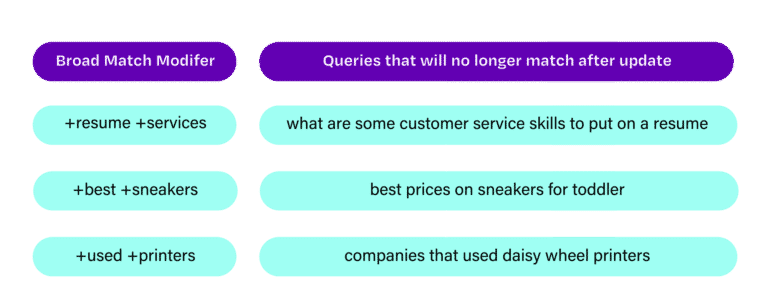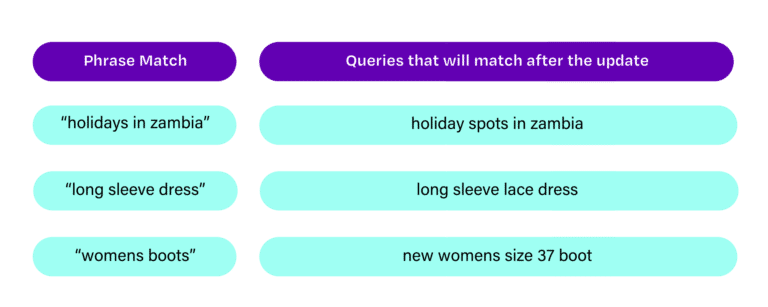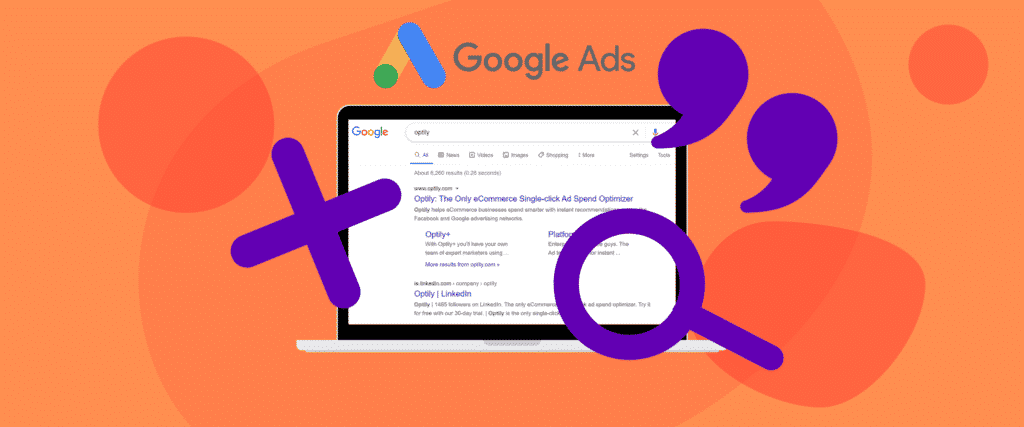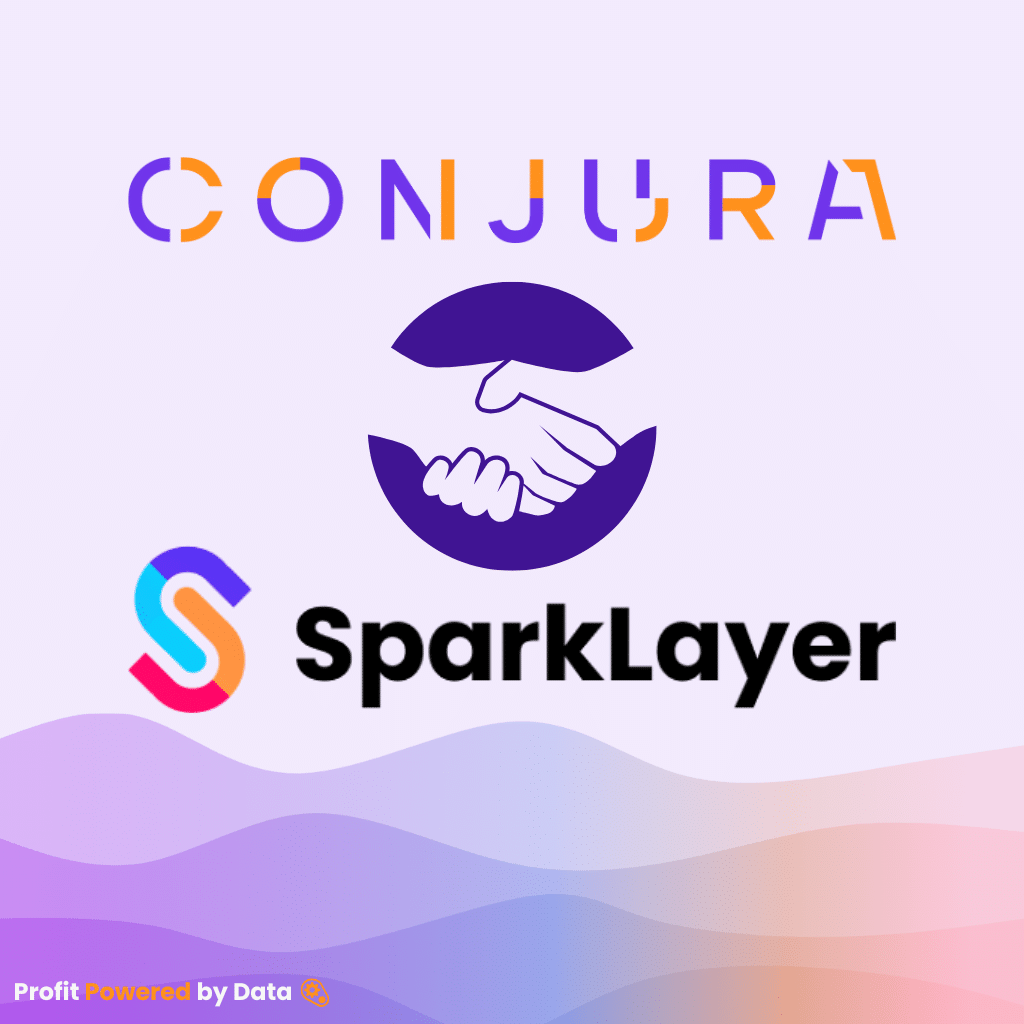Last week, Google announced that they were expanding Phrase Match in order to include traffic that has been covered by Broad Match Modifier up to now. They will phase out Broad Match Modifier and use this upgraded Phrase Match starting next week. This will apply to English, German, Spanish, French, Italian, Dutch, Portuguese, and Russian, with other languages to follow by July 2021.

Broad Match Modifiers are the keywords you designate in your search with a “+” that can match any part of a search. Other search terms could appear before, after, or in between the Broad Match Modifier keywords and your ad would match. For example, +blue +coat would apply to “women’s blue winter coat,” but not to “blue summer jacket.”
Phrase Match is the keywords you put inside of quotes that allow searches to apply that match the specific order of your keywords, including variations, but can include other terms before or after. For example, if your Phrase Match keyword is again “blue coat,” it could match searches like “comfortable blue coat” or “best blue coats on sale.” However, it would not match “blue fall coat” or “men’s blue trenchcoat.”
Is the change good for users?
Google emphasized that the Phrase Match change was made to help users by simplifying the search process. Its goal is to make it easier for advertisers to reach their target audience.
They said in their announcement, “To give you more control and better reach, we’re bringing the best of broad match modifier into phrase match. As a result, phrase match will expand to cover additional broad match modifier traffic, while continuing to respect word order when it’s important to the meaning. This makes it easier to reach customers and manage keywords in your account.”
Here’s a diagram Google provided to help illustrate the upcoming change:

Source: Google
The change should make campaign management easier and save PPC managers time overall. Google provided some specific examples of the new changes:


Source: Google
Barry Schwartz, the founder of Search Engine Roundtable and CEO of RustyBrick, commented that the PPC community’s “early reactions to this…is somewhat mixed but still an overall negative to having less control.”
Randall Glick, Product Manager at Optily, adds, “I always liked broad match modifier, as it allowed a greater level of prospecting for search terms. Phrase allowed a semblance of prospecting but was always limited by only allowing searches that had words added at the start or end of the target phrase. Campaign creation just got a whole lot simpler and easier because now you only need a much smaller amount of Phrase matches to start building quality search term lists to target. I agree that it means less control, but this can be mitigated somewhat by analyzing your search term reports and adding in exact and negative types more regularly.”
Optimize your Google Search Campaigns with Optily
Even if you’re all set with your keywords and campaigns, if you’re like most eCommerce businesses, you might not be able to track which ads are performing the best. Attribution can be a huge headache for marketers when you need to spend hours with a spreadsheet to make sense of it all.
This is exactly what inspired our team to make Optily, the only single-click ad spend optimizer for eCommerce. Our super simple setup enables you to log in, link your accounts, and generate a recommendation in under 5 minutes! You can then apply these recommendations with just one click–you don’t even need to leave the platform to adjust your budgets! What have you got to lose except your ad spend inefficiencies? Try Optily free for 30 days.







